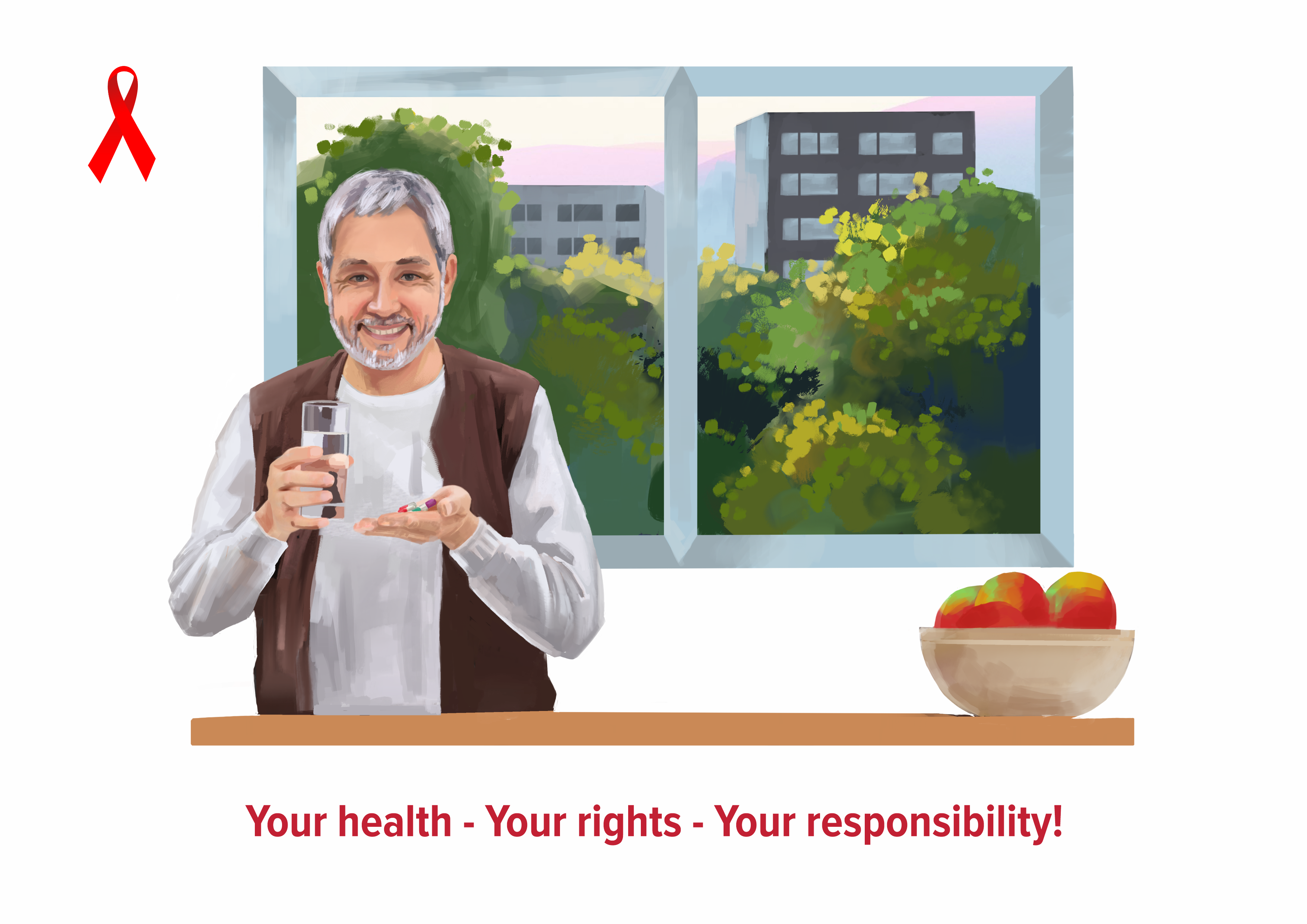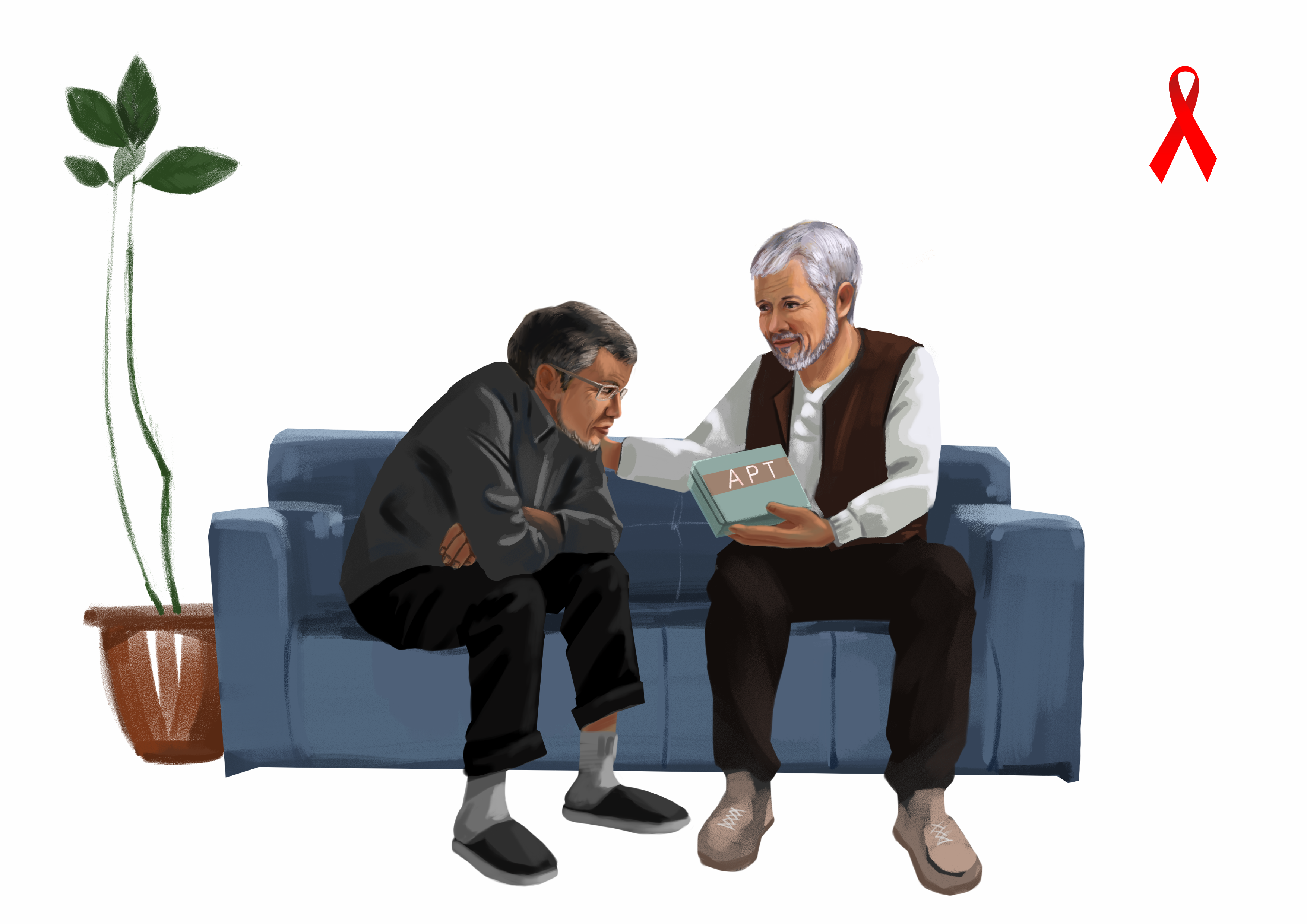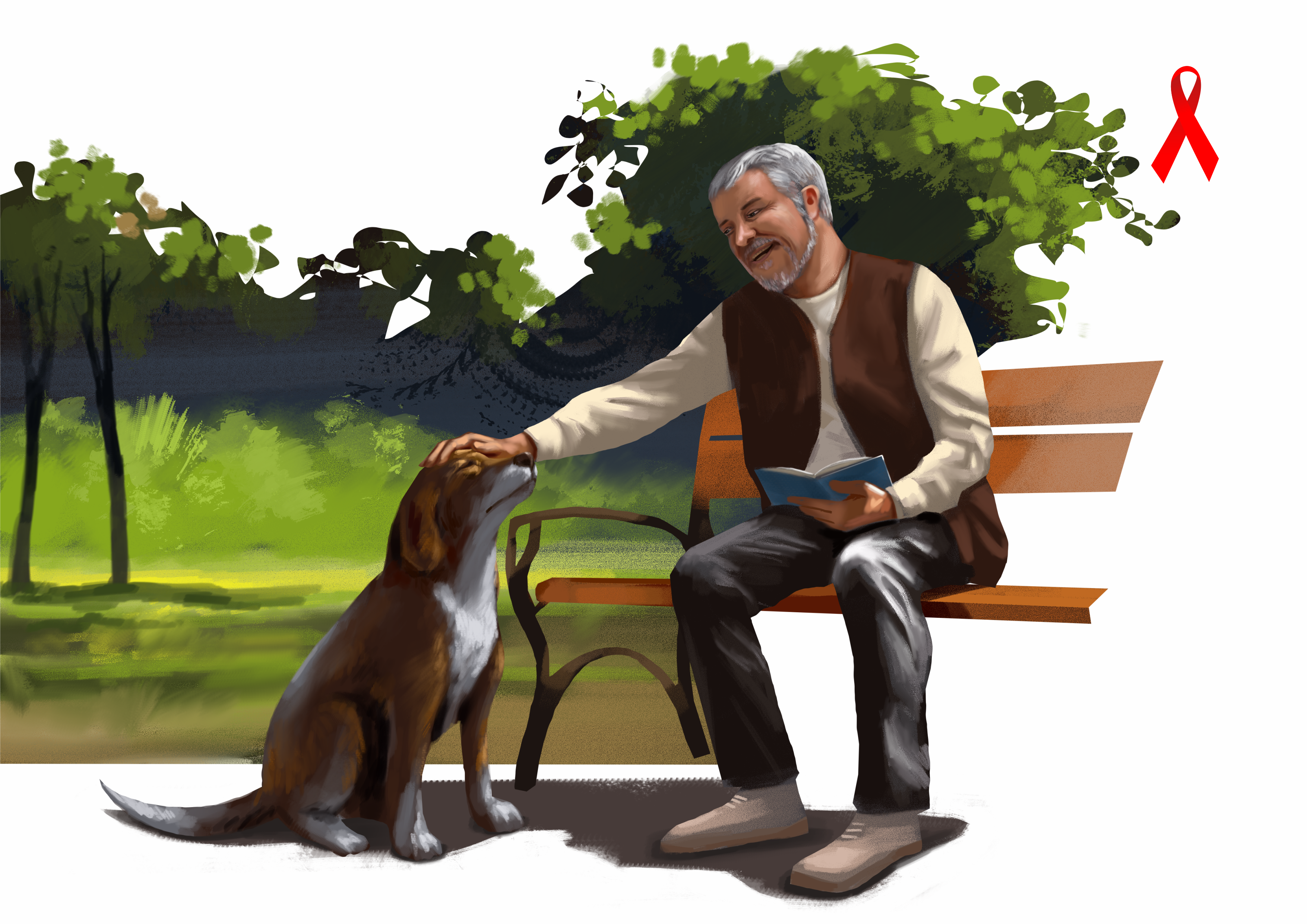Meeting Ruslan* for the first time is like meeting an old friend: he’s straightforward and puts on a sincere smile, inviting you right into his world. 55 year old Ruslan has been living with HIV for more than five years. And except for the one pill a day he now has to take, HIV hasn’t changed much in Ruslan’s life.
Ruslan knew about HIV before it even affected him, since he had started working in HIV prevention programs in 2005. “I learned about my status five or six years ago at work. I simply came to work that day and decided to get tested – I wasn’t expecting anything. My colleague tested me and then looked at me with these huge, surprised eyes and said: ‘you have HIV’. I took this news absolutely calmly. On the contrary, it was me who had to calm my colleague down.”
ART: a new chance at life
Ruslan wasn’t shocked, afraid or despaired: he perfectly knew that HIV can affect anyone, and that HIV doesn’t keep you from enjoying a good and long life with regular ART. However, it took him some time to start taking antiretroviral therapy (ART) – the only treatment for HIV which keeps the virus from developing in the body. “At first, I was very skeptical about the treatment, and I didn’t take it for around one year. But finally, my colleagues convinced me to start, and I’m happy I did. I haven’t stopped taking ART since, and now I feel perfectly healthy. At work, everyone got sick with COVID-19, but I didn’t even sneeze,” he says, happy to boast about his strong immune system.
HIV is a virus that attacks and weakens the immune system and makes a person extremely vulnerable to other illnesses. Untreated, it evolves into AIDS, when the body can no longer fight against infections. However, with timely and regular ART, HIV stops developing, meaning that a person living with HIV can be healthy and resilient to diseases, and cannot infect others with HIV.
Ruslan knows how effective ART is from his own experience and from that of his acquaintances. “One person that I’ve known for a long time refused to take ART, even though he knew about his HIV status. I tried to convince him to take the treatment, and he perfectly knew about it all, but he still continued refusing. Until he got tuberculosis. It was very hard for him to beat TB; he even fainted several times. That’s when he understood that his immune system wasn’t as solid as he had thought. And, one day, he came to me and said that he had registered at the AIDS Center. He had realized that his immune system was no longer able to cope, and so decided to get treated. I saw him six months later, and he was already feeling much better,” says Ruslan.
Helping people with his experience
Helping people accept their status and convincing them to take ART is actually what Ruslan does for a living. “I understood that I can help people who are in a similar situation,” he says. “I give myself as an example. My job is to get through to people, to explain everything to them and find a way to get across. I also help them physically, I take them to the hospital, help them register for treatment. My job is to tell them that people can live with HIV, that people with HIV even have families. You just need to take treatment and, besides, it’s completely free. Some people understand, others don’t. Some may get it after the twentieth time. As for those who don’t have HIV, I warn them, I inform them, so that they’ll be more careful.”
Ruslan knows better than anyone else what it means to live with HIV, and to what extent ART can help. “There are some side-effects to ART, of course, but you get used to them,” he says, before adding: “I want to tell people who have HIV that you can live, have a family, have friends and work with HIV. You just have to be careful and to take ART, and there won’t be any problems.”
Ruslan himself has not experienced any stigma because of his status; in fact, even his neighbors know that he is living with HIV, which hasn’t changed anything in their relationship. “I haven’t had many problems with discrimination because of HIV. The only thing is when I tell my partners that I have HIV: people react differently. Some aren’t scared, while others immediately disappear from my sight.”
For Ruslan, stigma mostly exists at the state level, rather than in personal relations. He gives the example of a friend of his who went to Kazakhstan for work, but was fired and forced to leave the country as soon as his HIV status was disclosed. “According to the law, we have the right to work, but, in reality, we are thrown out no matter where we go.”
Live like an ordinary person
“When I started working in the HIV field, we had a different policy. We used to scare people about HIV. Now, of course, we have a different approach: we explain that you can live with HIV and even have a healthy family, as long as you take treatment.” Ruslan is passionate about his job just as he is about life in general, and he would like for people to be more attentive to their health.
“Now, we live in a time when we have to take care of ourselves. If you want to live, go get treatment. Everything is in your hands, and the decision is on you. But of course, if there’s something you don’t understand, just ask and we’ll explain. Specialists will help you.”
“I would also like to tell people who’ve just learned that they have HIV not to waste time on trying to find out the who’s and the how’s. That’s useless. You should worry only about the future; the past will not help. Find an organization, and they’ll help you. There’s nothing difficult about HIV, you just have to go get treatment,” says Ruslan, who is determined to live “like an ordinary person”.
“I really like my job. I love meeting different people, discovering their views,” says Ruslan. “And I’ll continue working as long as I’m needed.” Ruslan has no other concrete plans for the future than to “simply live”. He bends down to pet a stray dog and, with the same enthusiasm as the puppy, runs down the alley covered in autumn leaves. His optimism and constant energy give hope to many who struggle with their HIV status.
*The name was changed.

 Locations
Locations







